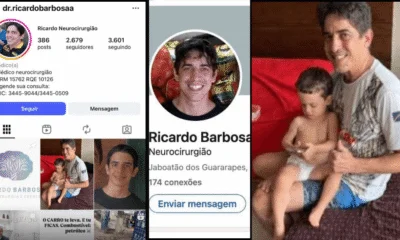Washington, D.C. — The U.S. State Department has taken the extraordinary step of permanently revoking the visa of Ricardo Barbosa, a Brazilian neurosurgeon from Pernambuco, after he publicly praised the assassination of political activist Charlie Kirk.
Barbosa came under heavy scrutiny after sharing a now-deleted post on social media in which he applauded the assassin’s “impeccable aim.” Using clinical language, he noted that the fatal shot struck the cervical spine, remarks that authorities and medical peers alike said were deeply disturbing and amounted to an endorsement of political violence.
State Department’s Response
Deputy Secretary of State Christopher Landau ordered Barbosa’s immediate visa revocation. In announcing the decision, Landau stressed that the United States would not allow foreign nationals who glorify acts of violence to enter or remain in the country.
“These were the most chilling comments I have ever read in my career,” Landau said. “Foreigners who glorify violence and hatred are not welcome visitors to our country.”
The ruling makes Barbosa permanently ineligible to travel to the United States, underscoring the seriousness with which the government treats any foreign support for terrorism or political assassination.
Professional Fallout in Brazil
Back home in Brazil, Barbosa’s words have triggered swift and severe professional consequences. He was fired from the clinic where he had been practicing, and the Regional Medical Council of Pernambuco (CRM-PE) has launched an investigation into his conduct.
Officials confirmed the inquiry will assess whether his remarks breached the ethical and professional standards expected of medical practitioners. Possible penalties include suspension or the permanent loss of his medical license.
“Doctors are entrusted with the care of human life,” a CRM-PE spokesperson said. “Any statement that glorifies violence goes against the values of medicine and the public trust.”
Legal Review Underway
Brazilian authorities are also examining whether Barbosa’s social media comments could fall under existing criminal or civil statutes, particularly laws concerning incitement or glorification of violence. While freedom of speech laws provide some protection, experts argue that Barbosa’s professional status as a physician places him under greater responsibility.
The outrage has been immediate. Advocacy groups, patients, and members of the public have denounced Barbosa’s words as unethical, irresponsible, and dangerous. Many have called for decisive action to ensure medical professionals remain accountable for public statements that conflict with their oath to preserve life.
A Global Warning
The case has drawn international attention as a stark example of how online speech can have life-changing consequences. Once seen as a respected neurosurgeon, Barbosa is now facing professional disgrace, legal scrutiny, and a permanent ban from the United States.
The State Department’s move also signals a broader warning: any public endorsement of political violence will not be tolerated, regardless of who makes the statement or where they are from.
Barbosa’s fall from grace highlights the growing intersection of social media, professional accountability, and global security concerns. What began as a reckless post online has now left him facing the loss of his career, reputation, and freedom to travel abroad.


Leave a Reply